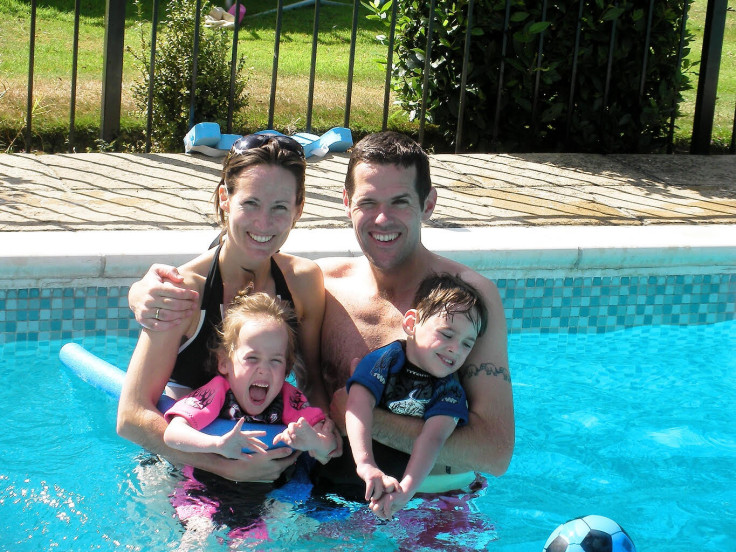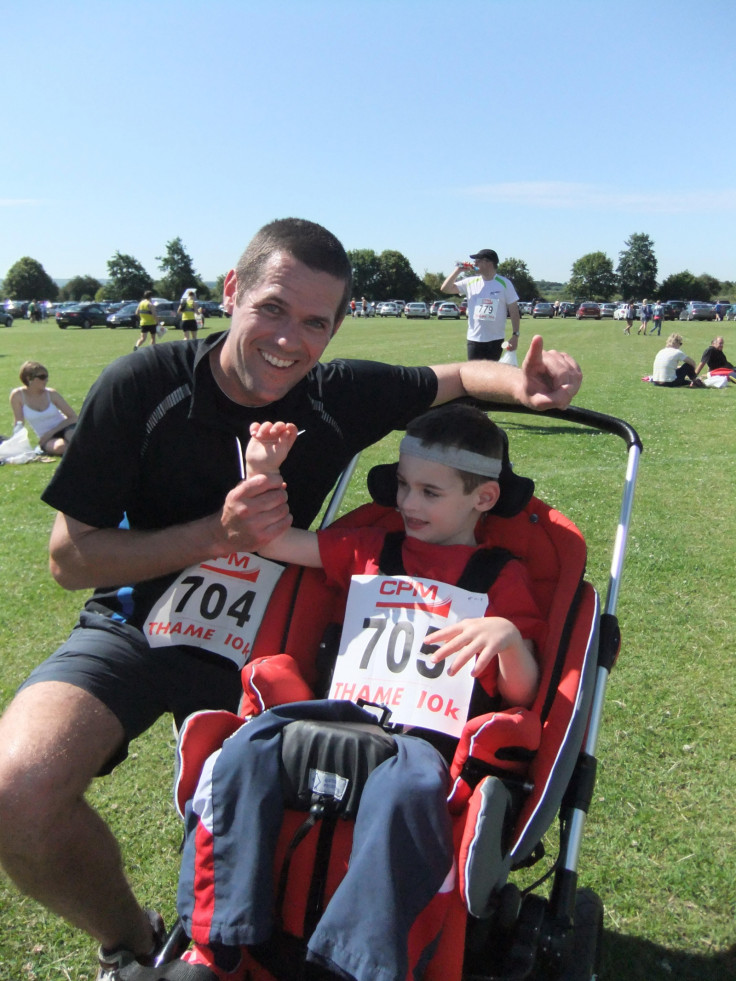My second job is waking every hour through the night to care for my disabled children - but I wouldn't change a thing
I am fortunate to have an employer who accommodates my situation - but not every family is so lucky.

For the past 12 years, I have been living an unusual existence. By day, I'm a City PR guy. At night, like some slightly rubbish superhero, I don my pinny and become an auxiliary nurse.
My wife Georgie and I are proud parents to two exceptional, funny, engaging, loving and severely disabled twins: Thomas and Alice.

Our twins were born prematurely. They weren't messing about with a few weeks here or there, they were properly early – more than four months. We joked that it was because they were so keen to meet their parents, but we were laughing on the other side of our faces when the battle began.
Alice had four heart attacks on the first night of her life. The next day the South East of England suffered a power cut and the machines that were keeping our babies alive went down. Then, on day three, we were asked if we wanted to have Thomas baptised because he was going to die within the next 20 minutes. It was a rude and shocking beginning to our lives as mum and dad.
They made it, and after nine months in hospital they came home, but the impact of those traumatic early days was that the twins would never walk or talk – they had severe quadriplegic, athetoid cerebral palsy.
It took us a long time to reconcile ourselves to the fact that life was going to be very different from thereon in. But slowly, we gained acceptance and eventually celebration of the miracle twins and the light they bring to the world. Their victories, so tiny for so-called 'normal' children, are their Mount Everests.
Like the time that Tommy and I ran in our local 10k together with 1,000 other runners – me in my trainers, him in his wheelchair – and he slapped the bums of other runners as we overtook them.
Like the first time that Alice, through sheer tyranny of will, managed to say the words, "I love you, Daddy" after ten years of trying.
Like when Thomas got a powered wheelchair and realised that, for the first time in his life, he was able to go exactly where he wanted, rather than where we pushed him.
My second job starts when I get home from work. I help prepare medication for the nighttime (20 syringes a night to be administered every hour), I give my son oxygen, I suction his throat if he has a cold and I run up and down stairs every time his oxygen monitor alarms. Then we're up every hour through the night, changing the twins, giving them medicine, turning them if they're uncomfortable and calming them if they go into spasms. At 5.30am, my alarm sounds and the day begins again for job #1.
So does my work impact my ability to be a good dad? Or, looked at another way, how do my demands as a parent impact my ability to be half decent at my job?
I'd love to tell you that it's all been plain sailing, but that would be exaggerating. The second life impacts you in many ways. You feel torn between your work duties and the pressing needs of the family, and this leads to stress both at work and at home.
You worry you are missing out on opportunities for new client work and promotion and that you have to cut back on travel opportunities. You end up using up holiday time for the never-ending schedule of hospital appointments.
- 6.5m people in the UK care, unpaid, for an older, disabled or seriously ill family member or friend
- 3m people combine caring for a loved one with paid work - that's 1 in 9 people in the workplace.
- Over 2m people have given up work to care, with a further 3m reducing their working hours
- It costs UK economy £5.3bn a year in lost earnings and tax revenue, and benefits payments, from people who give up work or reduce hours
- 70% have used their annual leave to care and 48% have done overtime to make up hours
But I have been incredibly lucky to have an employer who has bent over backwards to accommodate my unusual situation
At the start of one year, I realised that I needed to be with the twins for five weeks of brain operations – my entire holiday allowance. Work said not to worry. Another time, Thomas was admitted into intensive care and nearly lost his life. Work said to take as much time as I needed. When my wife was on her knees with exhaustion after months in hospital with Thomas and I had to take six months unpaid leave to get the family back into shape, work didn't question it.
While I have been fortunate with my job, not everyone is so lucky. According to Carers UK, half of carers have given up work to care for loved ones. Nearly a quarter have reduced their working hours, while of those currently in paid work, two in five carers have taken a less-qualified job or turned down a promotion. Half have reduced their hours.
The main benefit for carers is the Carer's Allowance, which is just £62.10 per week. But to be entitled to Carer's Allowance you need to care for at least 35 hours a week for someone that receives a qualifying disability benefit.
One in nine people in the workplace combine caring for a loved one with work, but most have to use their holiday leave to accommodate it.
I've been with my employer for 16 years. I'm sure there's a lesson in that. But my message to employers is to be understanding. You may find that if you are flexible, you develop a loyalty that cannot be found any other way. And also, that one day it might be you looking for some understanding.
James Melville-Ross is a Senior Managing Director at FTI Consulting. His book, Two for Joy, about his experience of being a father to his twins is published by John Blake Publishing and was released in June 2016, priced £7.99.
© Copyright IBTimes 2025. All rights reserved.



















